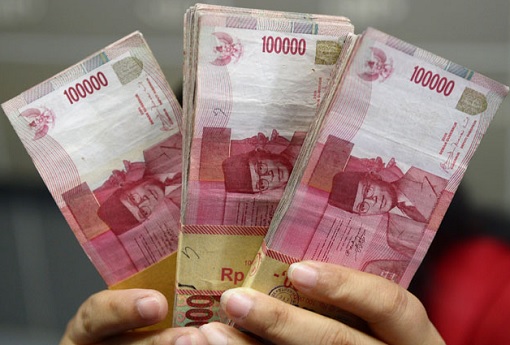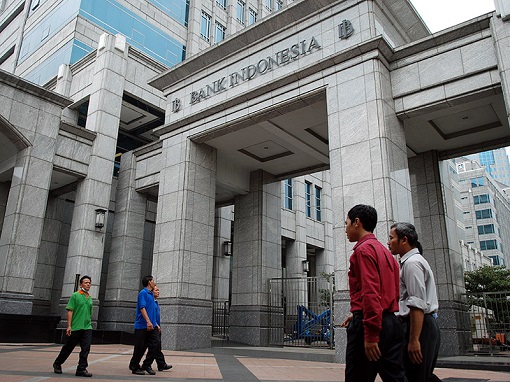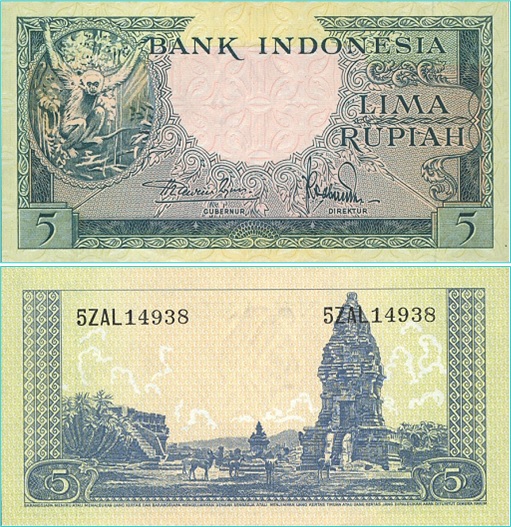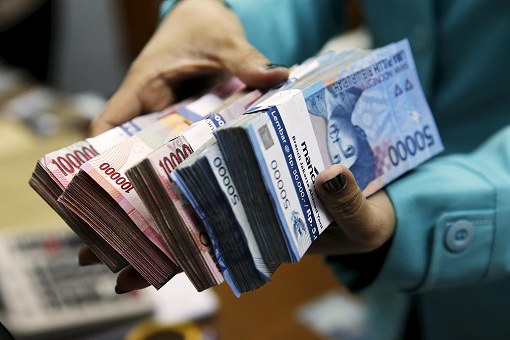Indonesia is the place you want to go if you wish to become an instant millionaire, or even billionaire for that matter. For as little as US$75 (£60; S$110; RM335) at foreign exchange counter, one can become a millionaire. Indonesian Rupiah high denominations have long been a source of attraction or amusement to foreigners – both tourists and businessmen.
Besides Vietnam, Indonesia is the only country in Asia where its banks have “quadrillion” – Rupiah. However, being a millionaire is not something every Indonesian is proud of. The largest rupiah denomination is currently 100,000 (presently the second largest in the region after the Vietnamese Dong) and the smallest note is 1,000.

The country’s state budget or gross domestic product is presented in units of trillions of Rupiah. Stores have cash registers that can handle at least 9 digits, while banks’ IT systems were designed to accommodate transactions in trillions or greater. A cup of coffee in Jakarta could easily cost 25,000 Rupiah and would choke first-time tourists with laughter.
In 2010, Bank Indonesia, the country’s central bank, announced plans to re-denominate the currency, issuing new notes that would effectively drop three zeros so that 1,000 rupiah would be equal to one new rupiah. The finance ministry hoped it would be included in the 2013 legislative program but it didn’t materialize.

Not everyone is happy with the idea of making the Rupiah “artificially” strong again. People want the government to focus on ensuring monetary stability before implementing the plan. It would be another cheat way of “sanering” – a word of Dutch origin that refers to an attempt to defeat inflation by slashing the nominal value of notes in circulation.
Back in 1949, one US dollar could buy 3.8 Rupiah. To do the same today, you need about 13,405 Rupiah. Ten years later in 1959, 1,000 Rupiah notes were devalued at 100 Rupiah. A hyper-inflation in 1965 led to yet another devaluation and “sanering” – 1,000 Rupiah became 1 Rupiah. By 1971, one US dollar could be exchanged for 415 Rupiah only.

Today, Indonesia’s central bank governor is revisiting the plan – to slash three zeroes off the face value of Rupiah notes in a move to simplify it currency system. Bank Indonesia Governor Agus Martowardojo said he has asked President Joko Widodo to revive a previously shelved plan to re-denominate the rupiah to make it “more efficient and simpler”.
If Indonesian parliament approves a revived bill next year, the central bank would need 2 more years to prepare new notes. It would then need another 7 years of transition before it could fully remove three zeroes from the currency. The central bank’s new currency designs will be for notes that use the current denomination system and will feature images of historic Indonesian figures.

“Prices of goods and services have to also be simplified. Because of the transition period, in which people can use both the old and new rupiah denominations, we are sure it wouldn’t affect inflation,” Martowardojo said at the launch of a new series of designs for the physical currency.
However, even before the re-denomination was first mooted in 2010, some coffee shops, restaurants and stores in urban areas had already started dropping the zeroes. The price of a cup of coffee is printed as 25 rather than 25,000 Rupiah as everyone understood there was no way 25 Rupiah could buy the drink.

At the same time, however, some Indonesians are proud of their extraordinary weak currency. Indonesia is the only Southeast Asian member of the group of 20 developed and emerging countries, known as the G-20, where one dollar translates to such a larger number. So, while some think it was an embarrassment, some believe it was a national pride.
When asked if the dropping the zeroes “will not erode the value of the Rupiah,” Bank Indonesia Governor Agus Martowardojo simply gave the example of Turkey, which trimmed not three but six zeroes from its banknotes back in 2005.
Other Articles That May Interest You …
- Dollar Hits 14-Year High!! Ringgit Going Down Toilet Bowl – See You At Five
- This Country Is So Screwed Up That 123,000 People Travel 10-Hour To Buy Food
- Slave & Spy Harriet Tubman Made It To The New $20 Currency Note
- Soros – We’re About To See Something That Hasn’t Happened in “80 Years”
- China (Secretly) “Devalues” Yuan – Global Recession Is Calling
- Here’re Why Ringgit Can Go Further – RM4.50 To US$1 – And Beyond
- Woman On $10 Dollar Notes? Here’re 20 Countries That Have Already Done That
- Ringgit Is Toast – Here’re Proof Malaysia The First Asian To Hit Recession
- Debts & Deficits – 21 Currencies That Have Gone Bust

|
|
December 19th, 2016 by financetwitter
|


|

|

|

|

|

|




























Dont laugh at Indonesia. Malaysia is heading the same path.